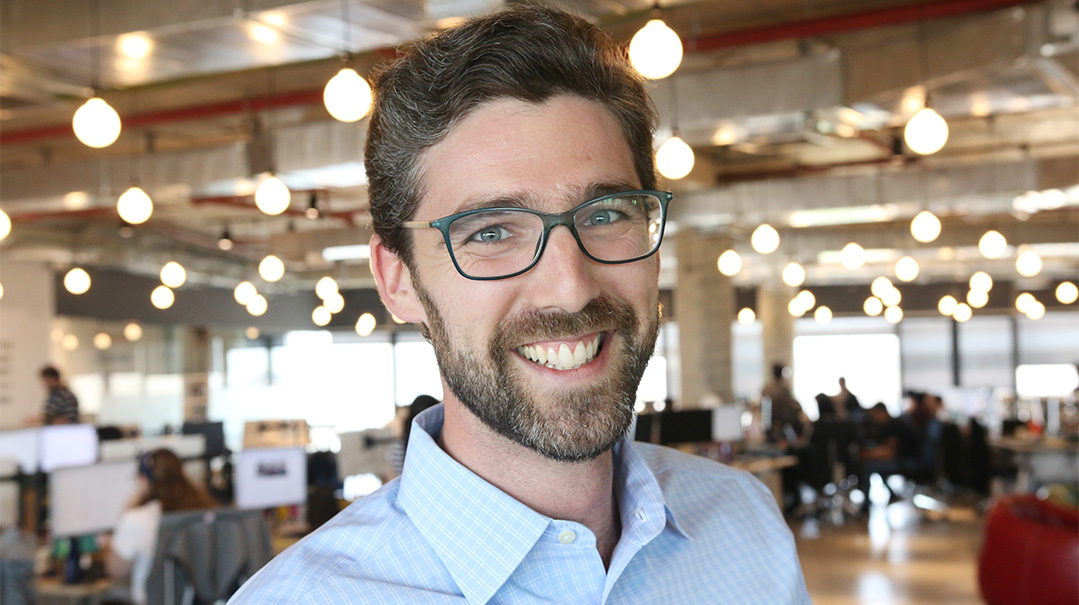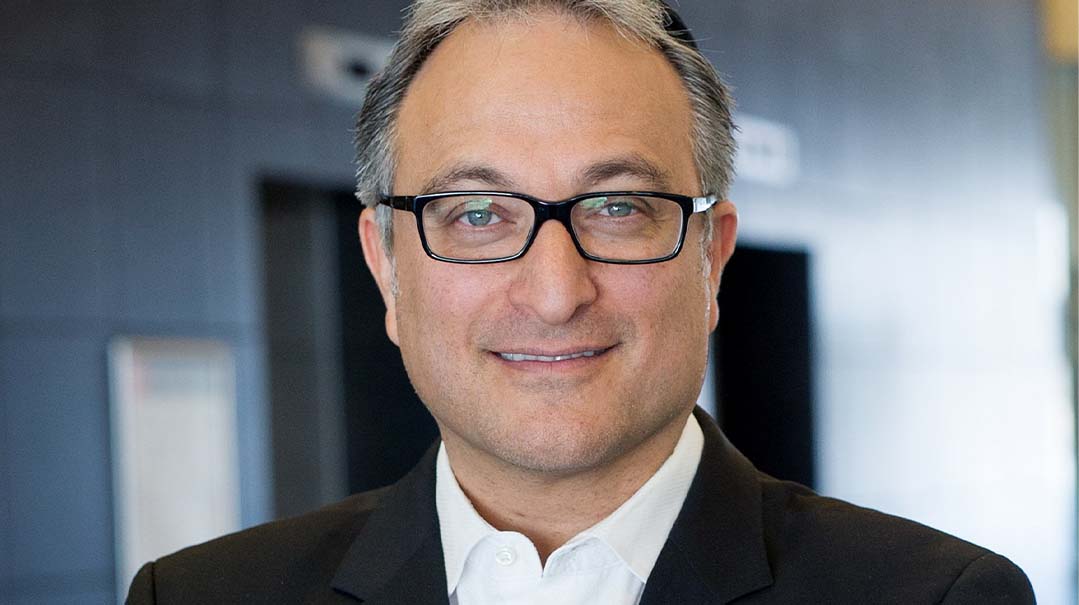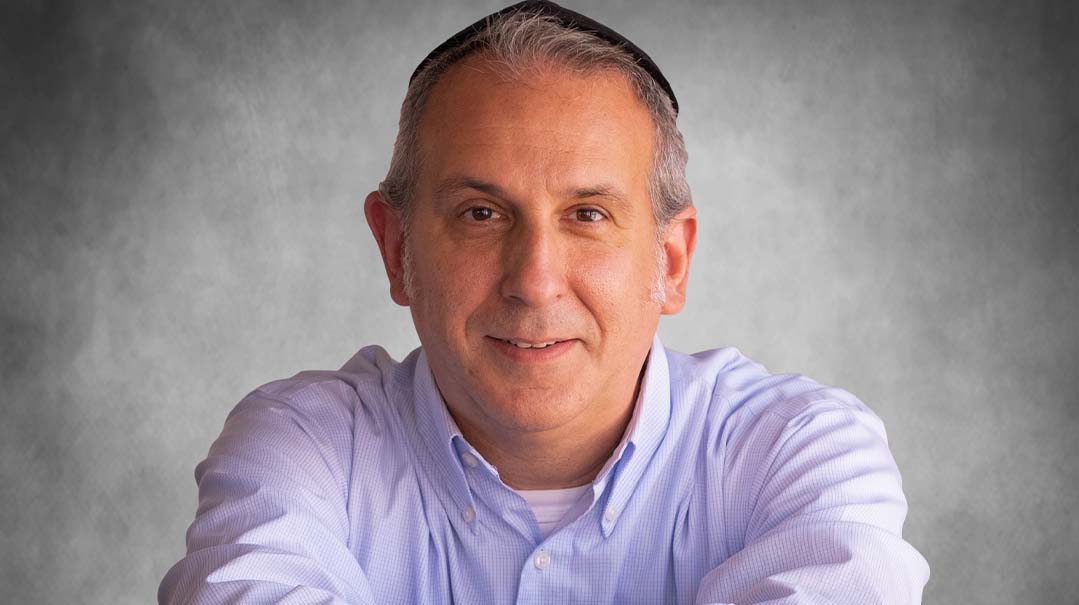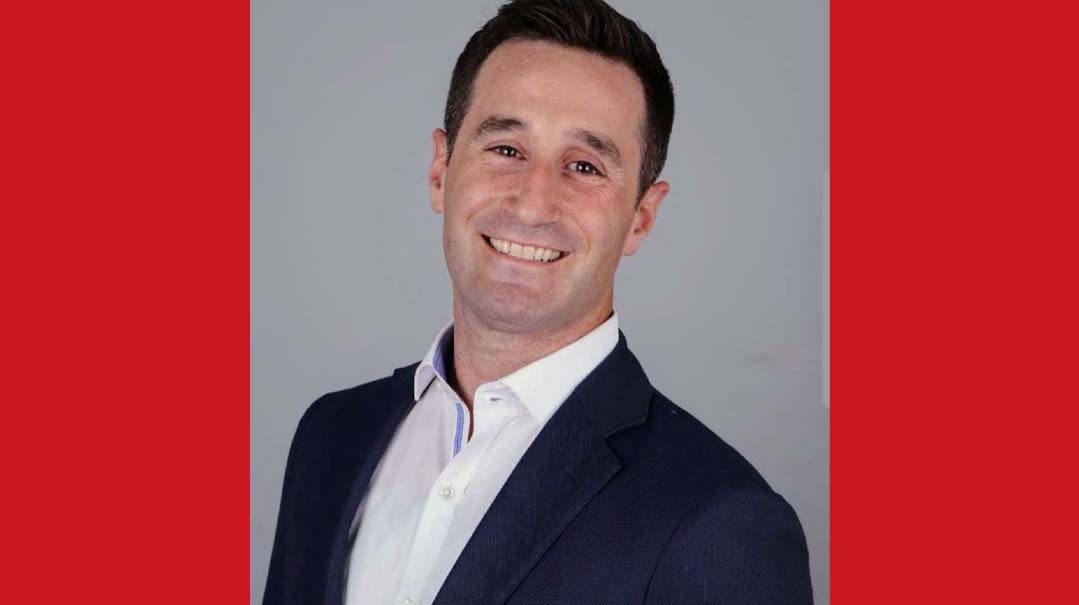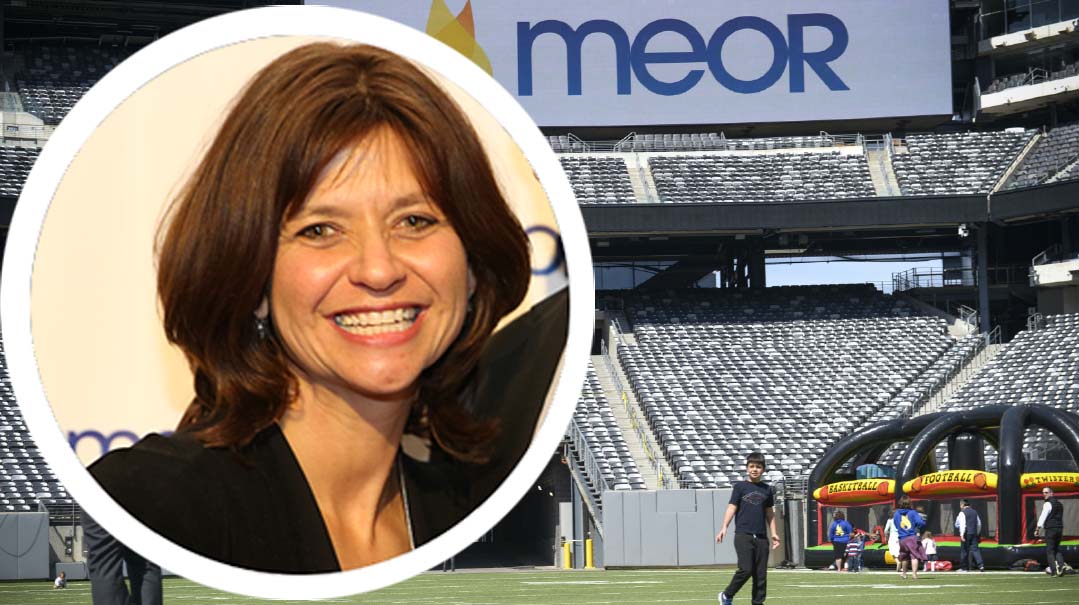Work/Life Solutions with Jeff Weinberg

"The trait of maintaining equilibrium, or menuchas hanefesh, as we call it, is a lifesaving tool"
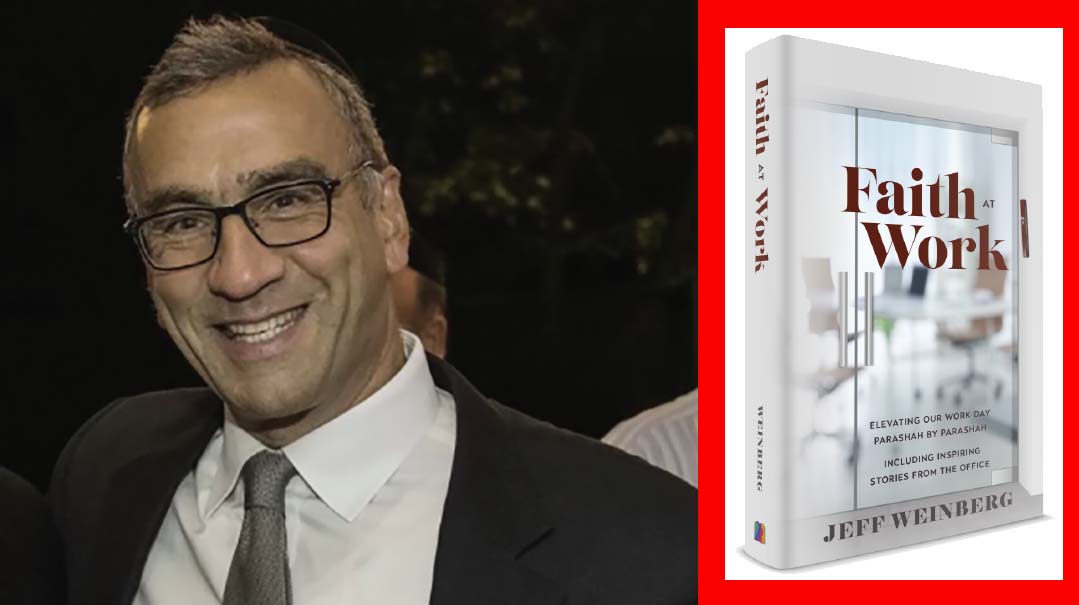
Who: Jeff Weinberg, co-founding partner of Meridian Capital Group and author of the newly released sefer, Faith at Work (Mosaica Press, 2021)
What: Founded in 1991, Meridian Capital Group is America’s most active dealmaker and one of the nation’s leading commercial real estate finance, investment sales, and retail leasing advisors. Jeff is also a board member of SoftWorks AI, a start-up software company that automates document-driven workflows with artificial intelligence and machine learning.
Where: Jeff grew up in Brooklyn and currently lives with his family in Woodmere, New York.
Why: I can usually write these introductions pretty quickly. But for Jeff, I’m having a difficult time encapsulating all of my thoughts and emotions into a couple sentences. Why? Because Jeff is the living embodiment of this 5 to 9 column, synthesizing every facet of his impressive career with his avodas Hashem.
From his rigorous learning, to his multifaceted community involvement, to his unparalleled humility, I am beyond inspired by Jeff and feel privileged to share his story and insights with you. But to fully absorb all his thought-provoking and inspiring ideas, please pick up a copy of his new book, Faith at Work. Based on the weekly parshah and infused with stories from the workplace, the book unpacks the ideas condensed from this interview and will surely help all of us create more meaningful, uplifting experiences in our professional lives.
2 of 9: Which three character traits have played a key role in your success?
What’s success? It’s important that we redefine the world conception of success and what it should mean to a Jew. Success is never about “making it” to the top. Regardless of what socio-economic ladder we are trying to climb, we are successful when we use the time we have productively. It’s crucial that we understand this, because most of our struggles at work come from our need to succeed.
I once heard Rabbi Wachsman say that our mood shouldn’t rise and fall with the stock market. The trait of maintaining equilibrium, or menuchas hanefesh, as we call it, is a lifesaving tool. I’m in the mortgage brokerage business, and there is a never-ending flood of emotions that can overtake me in such a competitive and demanding market. On a spiritual level, I work to balance the dictates of instincts. The existence of competing drives, conflicts, and inconsistencies leads to the need to restore equilibrium to become truly productive. Knowing that I am doing the best I can with the time I have, and knowing that Hashem ultimately controls each situation, it makes menuchas hanefesh an easier goal to achieve.
My friend Rabbi Yirmi Ginsburg pointed out to me that the gematria of parnassah and neshamah are the same, 395. There is a deep connection between our job and our soul. We should be able to utilize our G-d-given gifts on the job and by doing so, there will be sippuk hanefesh. I am a people person, by nature. I enjoy connecting with others, putting people at ease, and finding commonalities. I am constantly meeting clients and lenders, and many deals come to fruition because of the chemistry and energy that exist between all those working together.
Can we call emunah a character trait? Without it, there is absolutely no success on any level, and with it, there is success on every level. I have witnessed so many incidents where faith in Hashem brought financial success. One such time I recall early in my career was when one of our brokers contacted and set up a meeting with a very large real estate owner, who told us of a current offer that he got to finance one of his buildings. After speaking with that client, Ralph Herzka, the CEO of Meridian, advised the client to take it, as that was a great deal that we couldn’t beat. The potential client was so impressed with the honesty that he ended up doing a lot of business with us later. Knowing that it is ultimately all up to Hashem is the greatest conduit of brachah.
4 of 9: What would you say was your most resounding failure? What did you take away from that experience?
Being that Mishpacha magazine has a very large readership, and that my Hungarian mother can’t imagine that I could fail at anything, I will be a bit more general. Through my many years working in the mortgage brokerage business, but more specifically the first few years, I occasionally lost my temper.
I specifically recall yelling at a client on the phone because he cut me out of the deal and behind my back contacted the bank, after my introductions. I was (understandably) upset after I had spent a considerable amount of time and energy on this project. I was worked up, angry, and said things that I regret. My initial reactions of anger were strong, but even stronger were the feelings of frustration and pain that I felt after. Why was I losing it? Where was my self-control and my belief in Hashem? With the shiur that I listened to on my drive to work still reverberating in my head, how could I so easily lose my cool?
Because of these reactions, I began writing and collecting divrei Torah that specifically related to our avodah at “avodah,” putting true work into work. With these inspiring thoughts at the forefront of my mind, it made it easier to remember my true tachlis and made me ever so cognizant of Hashem’s hand in our work. Eventually, I compiled these divrei Torah into a sefer so that perhaps others could find inspiration as well.
5 of 9: If you were granted an extra three hours per day, or a spare million dollars, what would you do with them?
Would the million dollars be before taxes or after taxes? Either way, I would take the three hours and divide it evenly between learning with my chavrusa and spending more quality time with my family. These are the two areas of my life that no matter how much time I have, I want more. I am zocheh to have a morning chavrusa with my friend Reb Simchie for many years (may we continue until 120) and it sets the tone for the day ahead. I also feel blessed that Meridian provides a daf yomi shiur at lunch break and my rav, Rav Moshe Weinberger, gives a weekly shiur at the office as well.
Even so, at the end of the day, the hours we spend at work are usually much more than the few precious hours or sometime minutes that we spend doing what we love. Rav Weinberger shared a beautiful insight that gave me tremendous chizuk in this area. In the story of Chanukah, we are familiar with the term rabim b’yad me’atim — the few Chashmonaim were able to overpower the many Yevanim. This means that a little kedushah, i.e., what is truly choshuv to us, can overpower the mundane — even that which takes up much more of our time! The few hours that we have for our learning can win over the many hours that we spend behind an office desk.
It’s about the quality of our time more than the quantity. (Although if you offer me more hours for learning, I will grab them!) The question we always need to ask ourselves is what is most choshuv to us? We are where our hearts and minds are.
7 of 9: If you were asked to deliver a TED Talk watched by 50 million people, what topic would you choose to speak about? Why?
For those of us who have been working for a long time, and for those who are starting out in their careers, there is an important message I would share. Many think that once we leave the shul or beis medrash in the morning, our connection with Hashem is interrupted or put on hold until we get back home or until we daven Minchah. Nothing could be further from the truth! We have an amazing achrayus and zechus to be able to serve Hashem all day long — whether at our desks, behind our computers, on the phone, or face-to-face with our customers or clients.
A story about the Megaleh Amukos bears this point out.
The Megaleh Amukos ztz”l let the people of Krakow know that he no longer wanted to be their rav, but he didn’t tell them the reason. Despite their many pleas that he change his mind and stay with them, he remained firm in his decision. With heavy hearts, the community prepared a seudas preidah — a goodbye party for the Megaleh Amukos.
At the celebration, the Megaleh Amukos announced that he would continue serving as the rav of Krakow. The community was shocked and overjoyed simultaneously, but they wanted to know (a) why he initially wanted to leave, and (b) what caused his change of heart to remain with the kehillah?
The Megaleh Amukos said, “I still won’t tell you why I wanted to leave, but I will tell you why I decided to stay: A very unusual din Torah came to me.” He related the tale.
A wealthy person saw a pauper selling bread and bagels on the sidewalk, and he said to him, “I recognize you from years back! You’re a great talmid chacham! It isn’t fitting for you to sell bread on the sidewalk. I will give you as much as you need to live each month so you can learn Torah all day long in the beis medrash.”
The pauper agreed to the generous offer. Some time passed, and the wealthy person found the pauper again on the street selling bread and bagels.
“We have an agreement,” the wealthy man said. “Why are you here?”
The pauper answered that he and his wife decided to go back to their previous lifestyle, earning their living by selling bread on the street corners.
“But why? Isn’t it better to earn your parnassah easily so that you can learn Torah? And besides, you can’t back down from an agreement without my consent,” the wealthy man added. “We had an agreement, and a deal is a deal!”
They decided to ask the Megaleh Amukos, who asked the pauper, “Why don’t you agree to this arrangement?”
The pauper replied, “Before I received this generous stipend, my wife and I would wake up in the morning and immediately turn to Hashem, pleading that He help us earn a living. When we ground the wheat kernels, we prayed that the bread would be white and clean. When we kneaded the dough, we prayed that it should rise well. We also prayed that I should find dry logs to heat the oven (as fresh wood smokes and ruins the bread). We prayed that the bread should bake well, that people should buy it from us, and that they should be satisfied with their purchases so that they will buy from us again. When things went the way we wished, we praised Hashem for His kindness.
“From the beginning of the day until the end, we were constantly communicating and connecting to Hashem. But all of this stopped abruptly when we began receiving a monthly stipend. We weren’t turning to Hashem anymore, because we knew that we would have everything we need. My wife and I decided that we don’t want to live that way. We prefer going back to our old lifestyle, because then Hashem will always be on our mind and in our prayers.”
The Megaleh Amukos then said to the community, “After this din Torah, I decided that I wanted to remain here, in this city, to be among such Yidden!”
As we see from this story, our work can become avodas Hashem. The Baal Shem Tov says that one who works in this fashion is being oseik baTorah — involved in Torah, for not only is he learning it, but he is practicing it as well. Through our emunah that Hashem fills every part of this world, from the holiest to the most mundane, we reveal the sparks of holiness that can be found in every time and place.
As we finish the Chamishah Chumshei Torah, we celebrate Simchas Torah. On this day of rejoicing, we take the Torah out and dance with it. We don’t open the Torah (for a majority of the time). We hold it, hug it, and kiss it. There are times that it can appear as though the Torah is closed, but it is wide open. This message is especially relevant during our times.
There is baruch Hashem a popular custom for girls to marry boys learning in kollel. As families grow and the financial needs are more demanding, oftentimes the kollel boy begins searching for parnassah. His wife should strengthen him with this understanding so that he doesn’t chas v’shalom feel like a failure, a second-class citizen, or unworthy of her praise and admiration.
8 of 9: How do you navigate the tension between your deepest values and the business world?
I honestly can’t think of a time that I didn’t have to. From the moment I arrive at the office until the moment I walk out, I am faced with the challenge of either retaining my core identity as a baal emunah or allowing myself to indulge in the assumption that my ego, my intellect, or my efforts are what lead to the deal. In my line of work, there is a commonly used phrase, “he brokered me,” which means that by stretching the truth or luring me in with manipulative tactics, the broker got me to sign with him.
There exists a high level of pressure and competition. With every conversation I have, I can choose to remain true to my values as a Jew and deal with honesty and integrity, or leave my emunah and middos in the glove compartment of my parked car. We navigate tensions by bringing who we are to work — proud and unapologetic ovdei Hashem.
Once, after a beautiful and uplifting Yamim Noraim at Aish Kodesh, days filled with such pure kedushah, elevated singing and dancing, I had to be at a meeting with board members of a co-op building. Literally a few hours after experiencing the climax of spirituality, I was expected to sit in the basement of a building, with the sounds of the laundry machine in the background and the smell of musty chair cushions, talking about such mundane money matters.
I asked my rav, “How do I go to work now after such an uplifting time?”
He responded, “Take the Belt Parkway!”
And there, in that dark basement, surrounded by strangers and half-empty Styrofoam cups, I found Hashem! My rav was telling me that we don’t run away from our daily obligations after experiencing a spiritual climax; we bring it along with us. “Baruch kevod Hashem mimkomo.” From our makom, wherever it may be, we can bless and honor Hashem.
(Originally featured in Mishpacha, Issue 881)
Oops! We could not locate your form.

